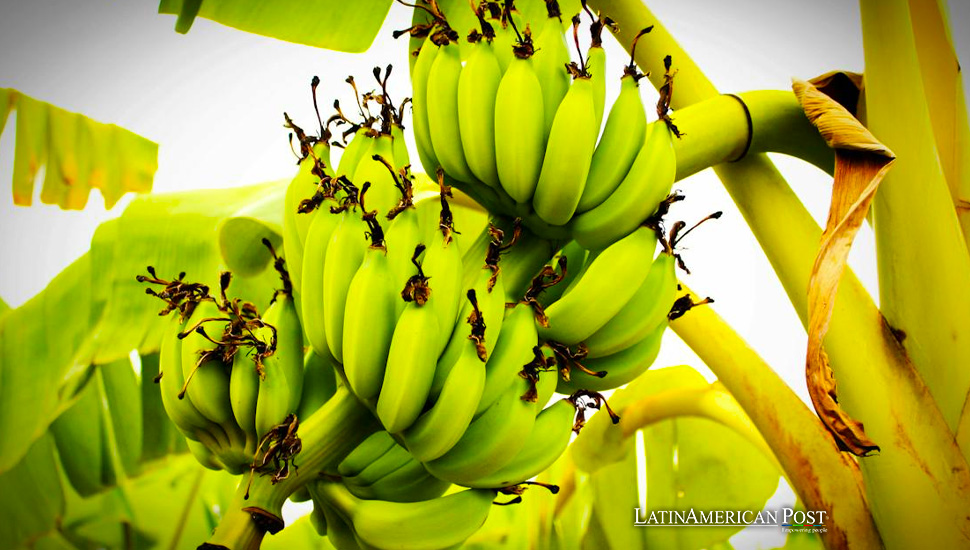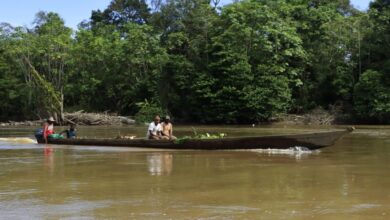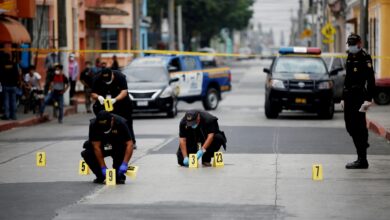Ecuador-Russia Tensions Escalate Over Banana Ban and Military Equipment Deal

The diplomatic standoff between Ecuador and Russia has sharpened following Russia’s recent ban on certain Ecuadorian banana imports, a move seemingly in retaliation for Ecuador’s military equipment exchange with the United States.
A Fruitful Trade Turned Sour
In a twist of international relations that intertwines fruit trade with military equipment dealings, Ecuador and Russia are embroiled in a burgeoning diplomatic rift. The tension, simmering for a while, took a decisive turn over the weekend when Russia banned banana imports from five Ecuadorian companies. This decision by Russia’s federal agency for veterinary and phytosanitary controls, citing disease in previous fruit shipments, is perceived as a direct response to Ecuador’s recent military maneuvers with the United States.
Ecuador, renowned as the world’s premier banana exporter, boasting sales of around $3.5 billion in 2022, relies heavily on the Russian market, which absorbs about a fifth of its annual banana exports. The sudden import ban disrupts this crucial trade relationship and signals a deepening of the diplomatic fissure between the two nations.
The root of the discord traces back to an announcement made by Ecuadorian President Daniel Noboa in January. Noboa revealed that Ecuador had agreed to transfer several tons of outdated Russian-made military equipment to the United States, fetching $200 million in new military gear in return. This move, aimed at bolstering Ecuador’s capacity to combat the rising menace of drug gangs, was labeled by Noboa as a disposal of “scrap metal” in exchange for essential modern equipment.
Diplomatic Spat Expands from Hardware to Trade
Russia’s reaction to this development was swift and sharp. The Russian foreign ministry protested, contending that Ecuador’s decision breached a contractual agreement prohibiting the sale of military equipment to third parties without Russia’s explicit consent. This diplomatic spat, ostensibly over military hardware, has quickly spilled into the economic domain, affecting the bilateral trade relationship between the two countries.
The ban on banana imports is not merely an issue of phytosanitary concern but a reflection of the broader geopolitical tensions underlying Russia-Ecuador relations. This move by Russia can be interpreted as a form of economic retaliation to express its displeasure over Ecuador’s military deal with the United States. For Ecuador, the implications are far-reaching, affecting not only its trade dynamics but also its international standing and security policies.
Ecuador’s strategic decision to upgrade its military arsenal through a deal with the U.S. underscores the country’s urgent need to address internal security challenges, particularly the threat posed by drug trafficking organizations. However, this maneuver has inadvertently entangled Ecuador in the complex global geopolitics, pitting it against a former military ally.
Global Repercussions: Navigating the Fallout and Shifting Alliances
The unfolding saga raises questions about the future of Ecuador-Russia relations and the potential ripple effects on global trade and diplomatic ties. While seemingly a specific trade dispute, the banana import ban is symbolic of the shifting allegiances and strategic calculations that characterize the contemporary international order.
The stakes are high as Ecuador navigates the fallout from this diplomatic row. The country must balance its immediate security needs and economic interests against an increasingly polarized global landscape. The decision to engage more closely with the United States, particularly in military cooperation, may have unintended consequences for its relations with other key partners like Russia.
Broader Implications: Trade, Diplomacy, and Security in a Complex Web
The broader implications of this dispute extend beyond the immediate economic impact on Ecuador’s banana exports. They underscore the intricate interplay between trade, diplomacy, and security in shaping international relations. As countries worldwide recalibrate their foreign policies and alliances, the Ecuador-Russia standoff serves as a poignant reminder of the complexities and unexpected consequences that can arise from such recalibrations.
In the coming months, the resolution of this dispute, or lack thereof, will determine the future trajectory of Ecuador-Russia relations and offer insights into the broader dynamics of international diplomacy in an era marked by geopolitical shifts and economic interdependence. For Ecuador, a small but strategically positioned country, the challenge lies in navigating these turbulent waters while safeguarding its national interests and maintaining its sovereignty in the face of global pressures.
Also read: NYPD Opens Liaison Office in Bogotá, Colombia to Combat International Crime Jointly
As this situation unfolds, the international community watches closely, keen to understand how these tensions will be resolved and what lessons can be drawn about the delicate balance of power, trade, and diplomacy in the 21st century.




